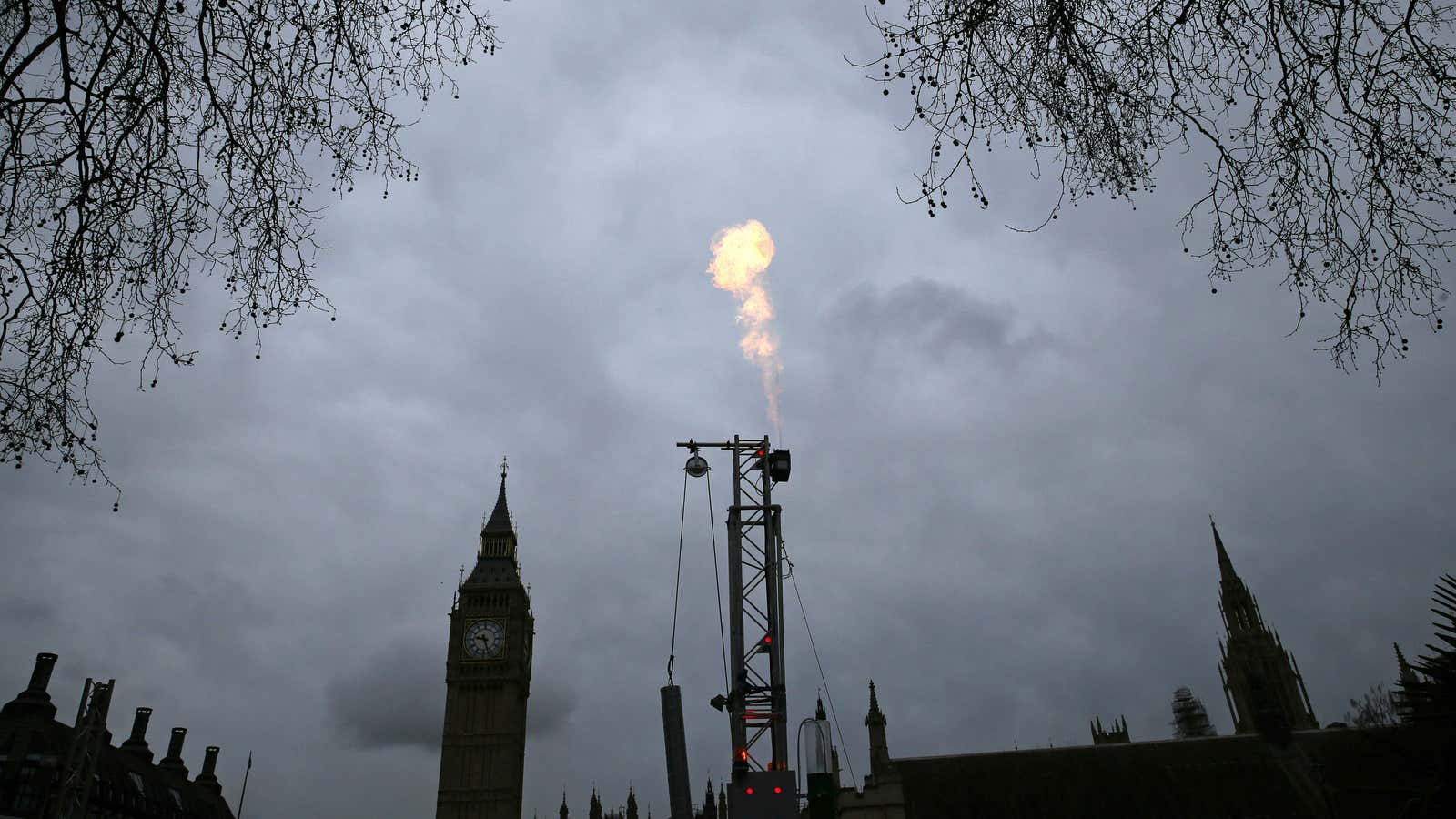Of all the factors Brits considered when they voted on whether to stay or leave the European Union, the environment was probably low on their list.
But now that Brexit is a reality, the laws in place to protect it face an uncertain future.
“Every major climate change agreement has involved EU leadership,” Ed Milbrand, the UK’s former energy secretary said before the vote. “When it comes to climate change Britain stands taller and is stronger inside the EU.”
History has shown that the EU is a leader in environmental regulations and British environmental policy benefitted from it’s influence. The EU’s stricter air pollution limits meant that some cities in the UK were able to sue the government to impose limits on nitrogen dioxide, a gas emitted through cars and industrial activity. EU regulations also forced Britain to clean up trashed beaches, recycle more, and limit fracking (where shale oil is extracted from the ground by using pressurized liquid which may pollute nearby water). Furthermore, Rory Stewart, the environmental minister, warned that Britain’s ability to uphold wildlife protection would be “diminished” if it left the EU.
The UK doesn’t have its own strong legislation for the environment, and it appears to be a low priority for Brexit-supporting politicians. Boris Johnson, who may take Cameron’s spot as leader of the conservative party and prime minister, is a climate denier. And Nigel Farage, the UK independence party’s leader, has been a champion of eliminating air pollution laws placed on power plants to “enhance industrial competitiveness.”
Climate change is often considered a problem for future generations; the worst effects won’t be seen until years from now. Perhaps it should come as no surprise then, that the majority of people who voted to leave the EU were older adults who likely won’t have to live with consequences of their vote, like rising sea levels and deaths due to pollution.
